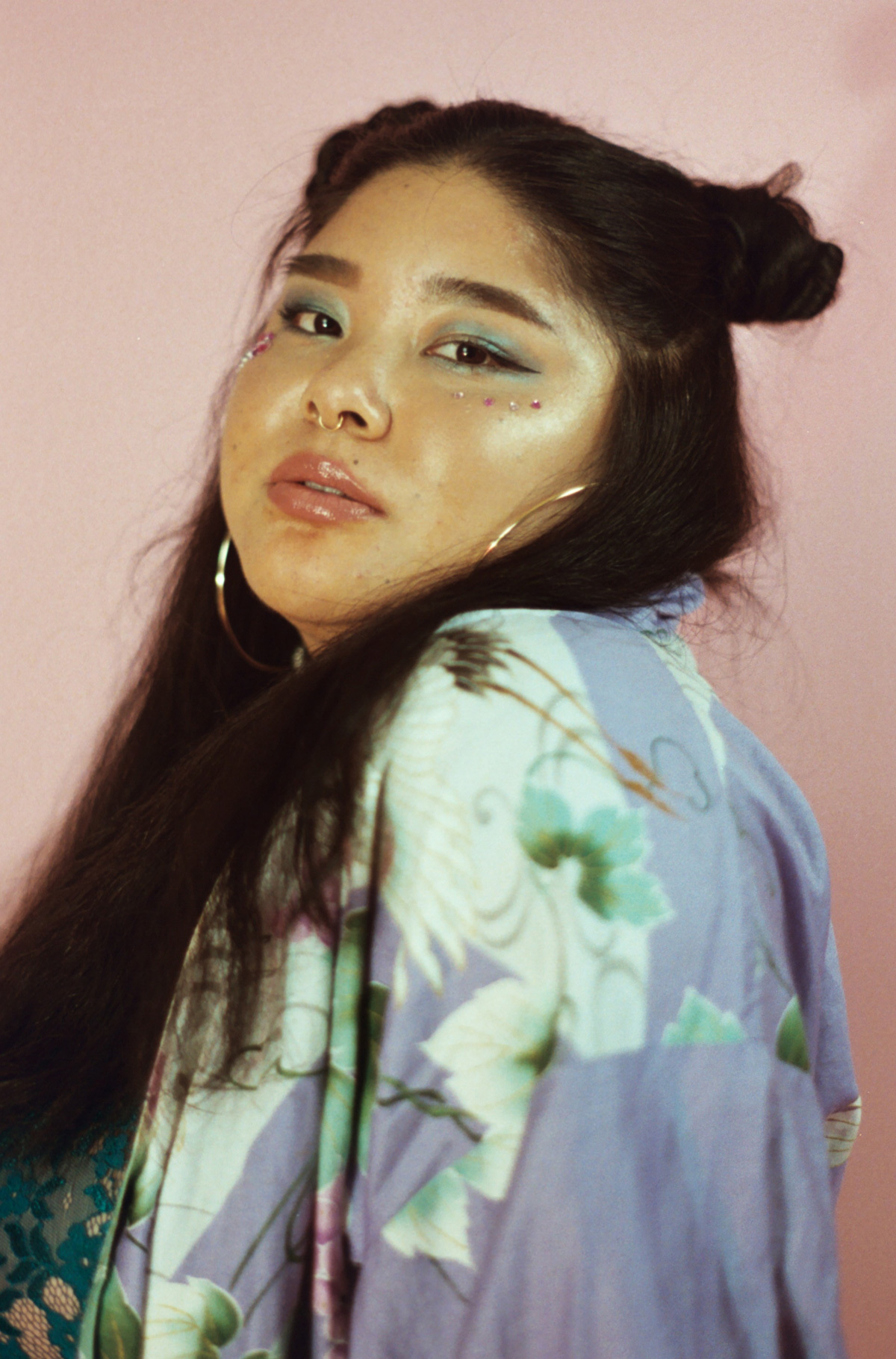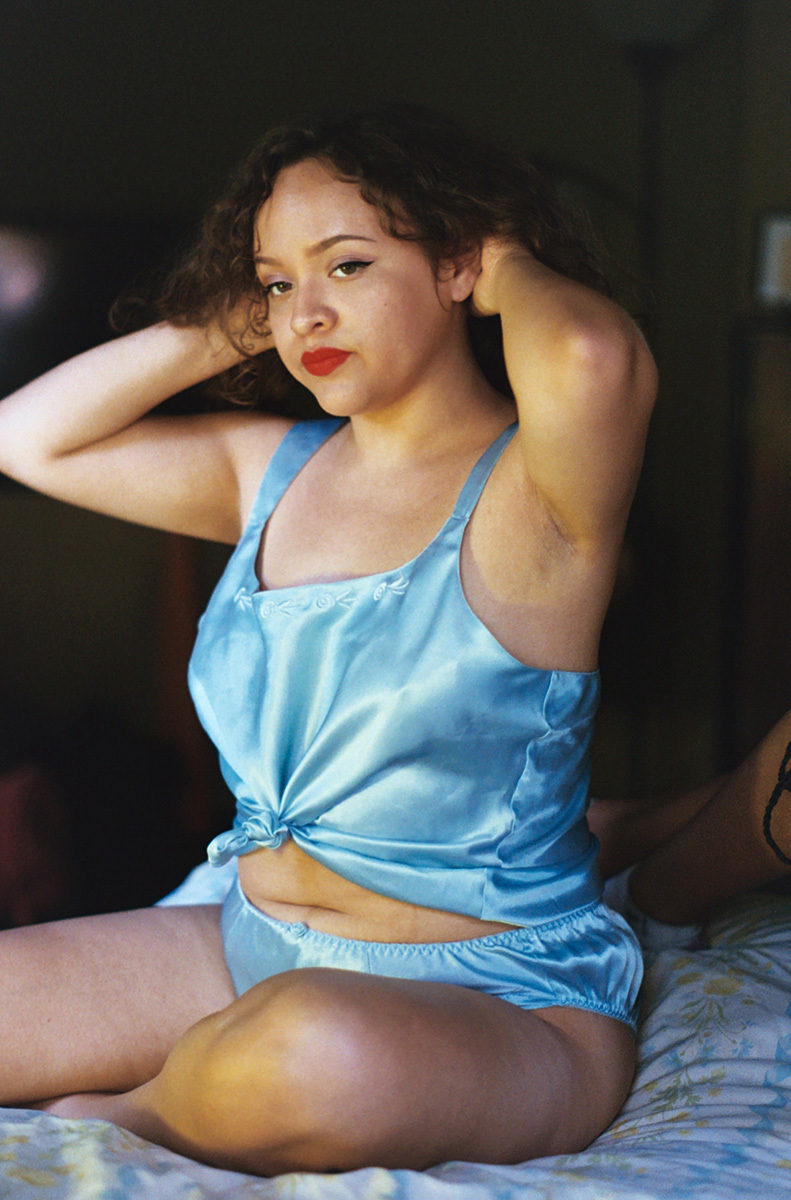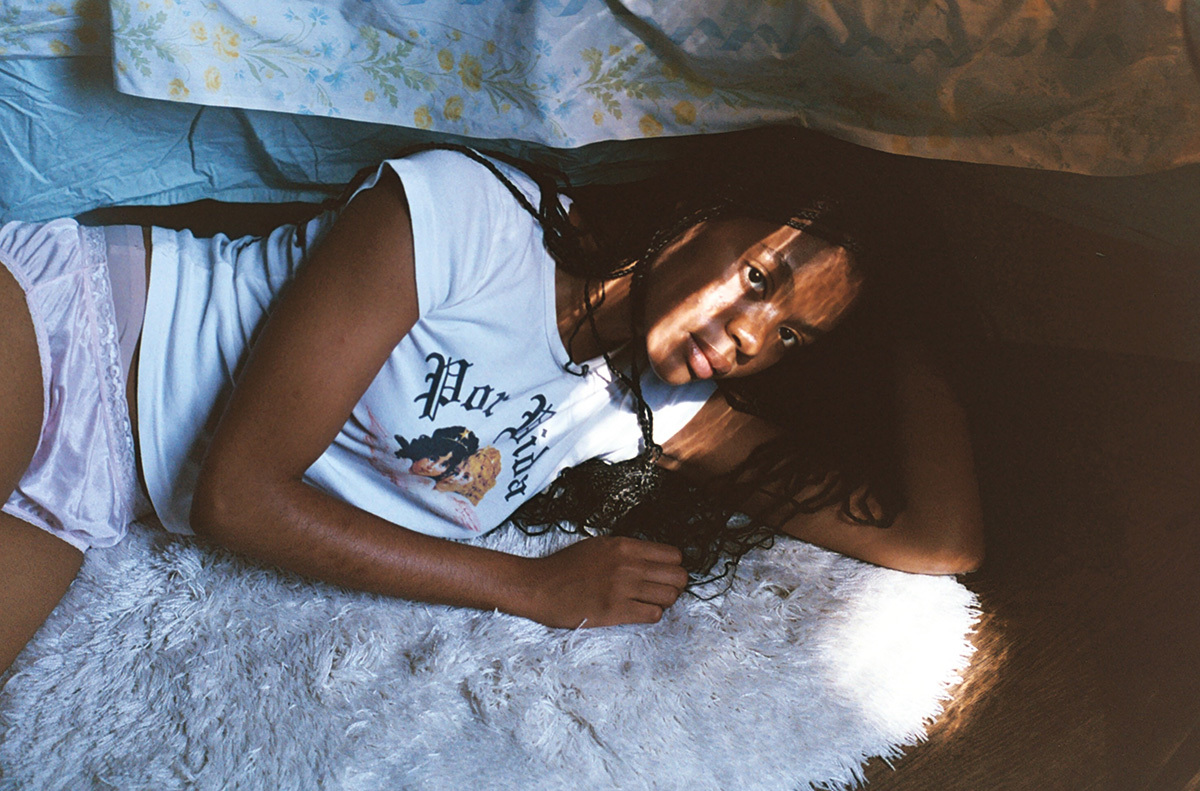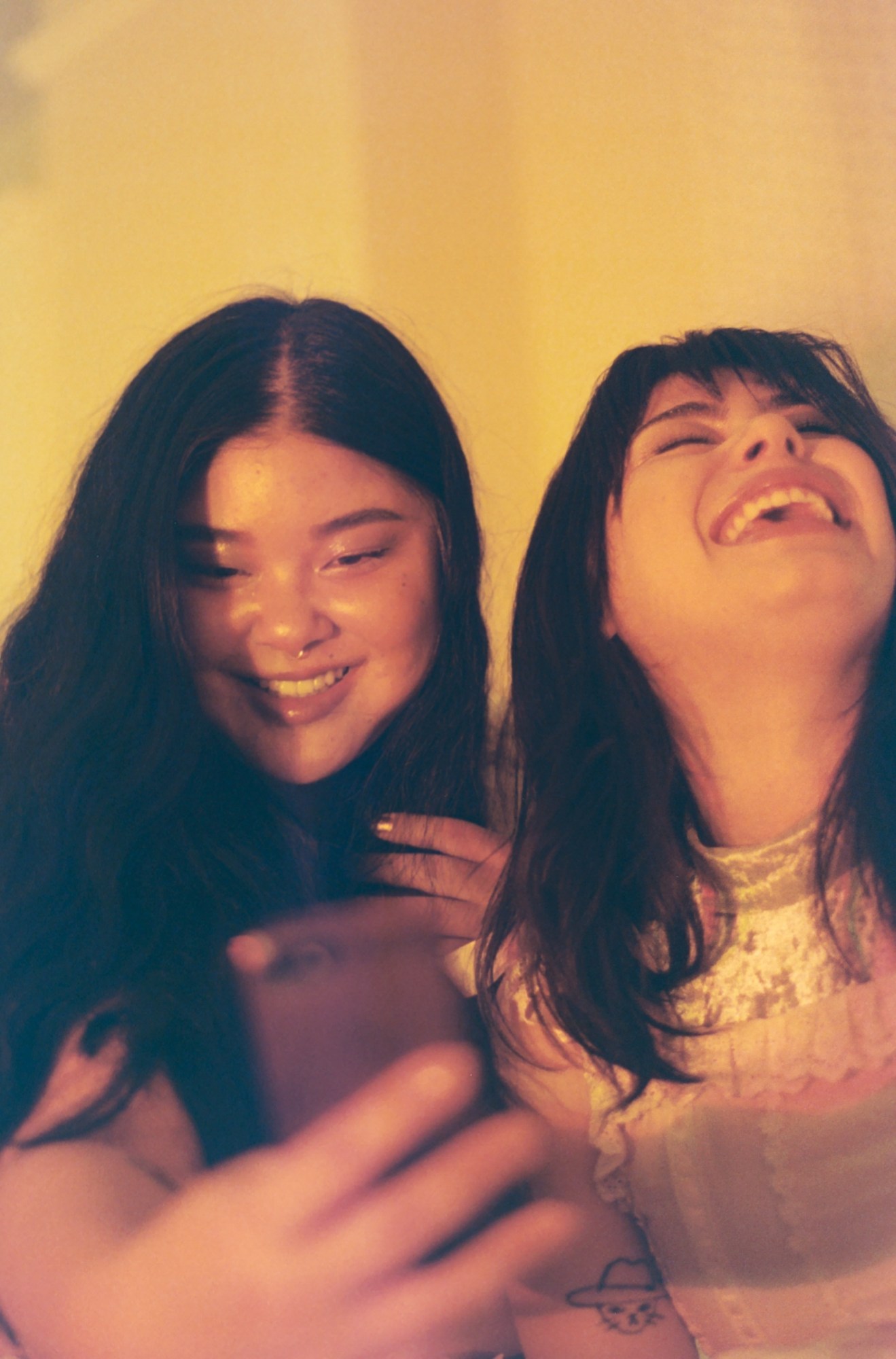Throughout her career Ashley Armitage has always tried to disrupt the norm, particularly when it comes to diversity, representation, and unrealistic ideals of beauty. When she was sick of the media’s representation of femininity and its constant dissemination of images of thin, white, able-bodied, cis women, Ashley created Bedroom Series —a collection of intimate portraits of girls shot in their most personal environments. When she was tired of female, PoC, and LGBTQ+ artists getting marginalized, she set up Girls by Girls Agency, an online platform to represent them. Ever committed to her cause, for her latest photographic project, Ashley has taken the underrepresentation of PoC as her central subject. Shot in her signature pastel tones — the visual language typically associated with the white-washed feminism of today — Ashley captures four individual women, each one with a different story to tell, but unified by their efforts as models, photographers, and stylists in challenging existing standards of beauty and the lack of diversity within our visual culture. Adding a voice to their visibility, here Ashley interviews each girl.

Why do you think it’s important to work with girls, LGBTQ+ folks, and PoC?
Growing up I felt like I didn’t have any real role models. The lack of influence led me to believe that I wasn’t right; I was “other,” and not good enough. This motivates me to create representation where there is none. I want the next generation of women, LGBTQ+, and PoC kids to grow up with realistic, multi-dimensional role models to look up to. People who come from where they come from, and look the way they look.
What is it about fashion and styling that appeals to you?
Having a weird body image due to being plus-size has informed a lot of my choices aesthetically. Because of how I perceived my body, I wanted to do anything I could to erase my body or to make it obsolete. I started to build this aesthetic persona who — in my mind — transcended size, weight, or shape. This is what has formed my visions today. Because of my atypical body I felt like I had to be the best, the sexiest, or trendiest in order to detract from the fact that my body was unacceptable. Over the years I went from observing fashion from the outside to becoming confident in my own presentation enough to entertain the idea of influencing the industry. What I thought of as a huge set back in my life has turned out to be my greatest asset, and my source of inspiration when styling. My extreme body hatred has morphed over the years into a positive creative force.

Amanda Ochoa, model
@la_mala_noche
Amanda is one of my besties in Seattle. We met under the most ridiculous circumstances. For my college graduation, I was having a karaoke party that went late into the night. I was at my apartment with like six people at 3am with our windows open so we were singing to the street outside. Amanda and her friend were walking by and we made eye contact. We all ended up waving them to come in despite not even knowing them. She came in, and ended up singing karaoke with us until 4am. It was so serendipitous. And now we’re friends and do shoots together all the time.
You mentioned to me that you model not for yourself but for others. What did you mean by that?
I model for anyone who’s ever felt insecure about themselves and to show that I have a body that can be relatable and different. Like most, I’ve had my fair share of insecurities and troubles with my own body. From first grade until high school I’ve been teased because of my body hair. And in my early 20s I’ve tortured myself in order to stay at an unhealthy weight. Finally I’m at the point where I just let go of trying to “fit in” with an unrealistic body type that wasn’t for me. These days I don’t let it affect me as much as it use to. Every once in a while I’ll still feel a bit insecure about myself, but seeing how people congratulate and feel empowered to witness a curvy body is mesmerizing. I’ve shown my body and will continue to use my body in hope to help everyone appreciate themselves and their body type no matter what shape or form. And that’s who I model for.
Do you think representation is important?
Absolutely. Now more than ever. Information and images are so accessible these days, especially body positive images. It’s incredibly important to be able to share with to a young audience. They are the most influenced and are going to have something to look forward to that not many of us had growing up. Everyone is different inside and out, and it should be out there for everyone to see.

What is it like to be photographed by white men and how is it different from being photographed by women or PoC?
The level of comfort. It’s much easier for me to be myself with women and PoC; we relate on a different level than white men. We struggle in a system built against us most, if not all, the time. With events and things going on in the world today, one tends to have a sigh of relief when they know they’ve just stepped into a room of likeminded people.
Do you have hope for the future of media being diverse and fair?
Oh definitely, I feel like it’s something to strive for. And how will we get there if there’s no hope? We all need to work together to make the media a better outlet for everyone. I would love to take a walk or a drive, and see a billboard of a girl who looks like me.

How would you describe the beauty standard, and how is your work dismantling it?
I think the beauty standard for women, specifically in this society, can be harmful because it makes us feel as if we have to look a certain way to be considered beautiful. However, I don’t think my work necessarily dismantles the beauty standard and I’m not really trying to dismantle it. What I am doing is showing women being confidant and owning who they are.
Why is representation so important?
It’s very important because it gives other people who are viewing my pictures someone to identify with. If I shot the same type of person over and over again there would be less people who could relate to the person in the image. I used to shoot the same person all the time in the past, but I eventually grew out of it and I began shooting different people, which helped my photography grow a lot. I am honestly still working on this aspect of my work because I think I could shoot more of a range of girls in future photo shoots.



Credits
Photography Ashley Armitage
